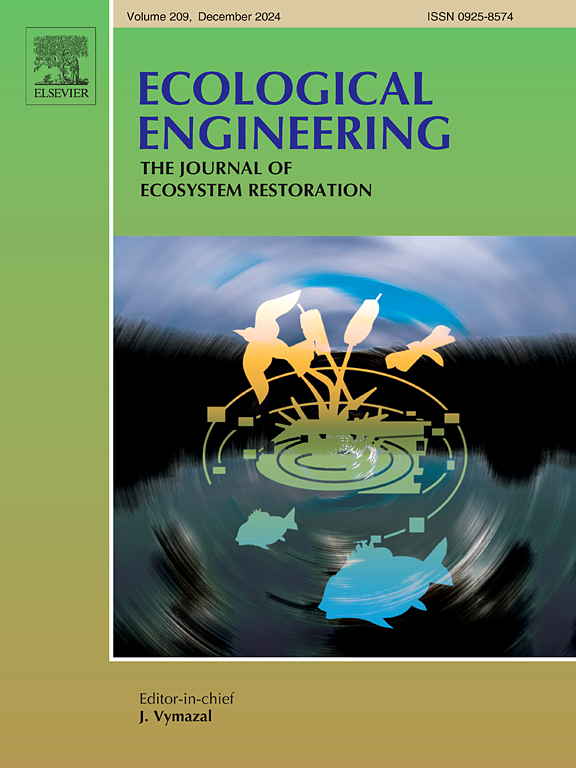Incorporating ecosystem service value into water resource management in water-scarce cities
IF 3.9
2区 环境科学与生态学
Q1 ECOLOGY
引用次数: 0
Abstract
The lack of carrying capacity of the water environment in water-scarce cities has highlighted the vulnerability of water ecosystems. Ecological water supply can no longer meet the needs of urban development, and the complexity of water ecosystems has led to unprecedented challenges in urban governance. This study improves the accounting framework for the water resource ecosystem service value (WESV) based on the System of Environmental and Economic Accounting and validates it with the case of Xi'an, the ancient capital of China. Based on the characterization of the changes in water resources assets, the WESV was accounted for by combining the equivalent factor with the water footprint method, and the impacts of socioeconomic and natural endowment factors on WESV were explored. The results showed that among the different ecosystem service types, water area contributed the most to the increase in ecosystem service value. The WESV reached 94.86 million US dollars in 2019, up 15.8 % from 2010. Regulating services are a core function, accounting for 81.4 % of the WESV. The declining value of the corrected provisioning service indicates a decreasing level of urban consumption of water ecosystems. Population density and the GDP positively drive WESV changes, and the effects of pressure factor and urbanization rate are negative. The contribution of natural endowment factors is large but characterized by instability. The findings indicate that WESV enhancement could help alleviate the urban water shortage problem. It provides a scientific basis to improve the transparency of urban water resource utilization and the water resources management level.
求助全文
约1分钟内获得全文
求助全文
来源期刊

Ecological Engineering
环境科学-工程:环境
CiteScore
8.00
自引率
5.30%
发文量
293
审稿时长
57 days
期刊介绍:
Ecological engineering has been defined as the design of ecosystems for the mutual benefit of humans and nature. The journal is meant for ecologists who, because of their research interests or occupation, are involved in designing, monitoring, or restoring ecosystems, and can serve as a bridge between ecologists and engineers.
Specific topics covered in the journal include: habitat reconstruction; ecotechnology; synthetic ecology; bioengineering; restoration ecology; ecology conservation; ecosystem rehabilitation; stream and river restoration; reclamation ecology; non-renewable resource conservation. Descriptions of specific applications of ecological engineering are acceptable only when situated within context of adding novelty to current research and emphasizing ecosystem restoration. We do not accept purely descriptive reports on ecosystem structures (such as vegetation surveys), purely physical assessment of materials that can be used for ecological restoration, small-model studies carried out in the laboratory or greenhouse with artificial (waste)water or crop studies, or case studies on conventional wastewater treatment and eutrophication that do not offer an ecosystem restoration approach within the paper.
 求助内容:
求助内容: 应助结果提醒方式:
应助结果提醒方式:


